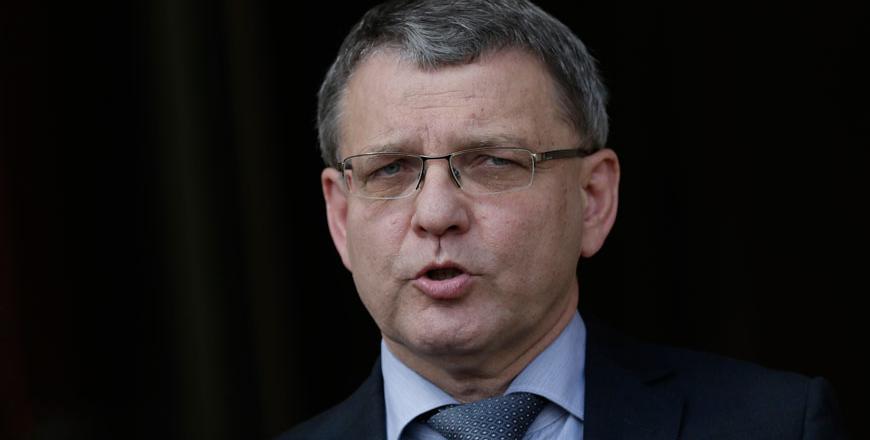You are here
Kidnapping of Czechs may be tied to detained Lebanese
By AFP - Jul 20,2015 - Last updated at Jul 20,2015
ANSAR, Lebanon — The kidnapping of five Czech citizens in Lebanon last week may be linked to a Lebanese man detained in Prague, whose family said Monday his lawyer was among those abducted.
The five went missing in the Bekaa Valley in eastern Lebanon on Friday, with security services confirming they had been kidnapped along with a Lebanese citizen.
The case appears to be linked to the arrest in 2014 of Ali Taan Fayyad, whose family said his lawyer was among the abducted group.
"We know the missing Czech team very well," said Kamal Mohsen al-Haf, a legal representative of Fayyad's family.
"One of them is Ali's lawyer, who has come to Lebanon four or five times and who we have met here," said Haf, who is also Fayyad's nephew.
"The group also included two Czech journalists, a translator, and Ali's brother Saeb Taan Fayyad, who was driving them in his car," Haf said, adding that the identity of the fifth Czech citizen was unknown.
He said the family had not heard from the kidnapped group, including Fayyad's brother, and were unsure who was behind the abduction and why.
The group was reported kidnapped after their car was discovered in the western part of the Bekaa Valley, in the Kefraya area.
Security sources said the group's passports were found in the car, along with professional cameras and video equipment.
Haf said Fayyad, who also holds Ukrainian citizenship, was formerly an adviser to Ukraine's defence minister for Middle East affairs, at the time of ex-president Viktor Yanukovych.
"He was arrested by Czech authorities at the request of the Americans who accused him of 'a plot against the United States' and demanded his extradition," Haf added.
According to the Czech newspaper Dnes, Fayyad and two other Lebanese citizens, Fawzi Jaber and Khalid Marabi, were detained in April 2014 in Prague.
Undercover sting
The three men are accused of trying to sell weapons purchased with drug money to people they believed belonged to the Colombian FARC guerilla group.
But their potential buyers were actually undercover agents from the US Drug Enforcement Agency.
Prague's municipal court initially approved Washington's extradition request for the three, but the Czech supreme court subsequently halted it saying there were no guarantees they would not receive inhumane treatment.
The request is due to be reexamined by the municipal court.
In Prague on Monday, foreign ministry spokeswoman Michaela Lagronova refused to comment on "speculations cropping up in the media" about the case.
"We cannot confirm kidnapping... but that is of course one of the possibilities being examined," she added, saying that a "crisis cell" would meet again on Tuesday on the issue.
Kidnappings of foreigners have been rare in Lebanon since its 1975-1990 civil war, when some 100 foreigners, mostly Americans and West Europeans, were snatched.
But some cases have been recorded, often for ransom and involving Lebanese as well as foreigners.
In the most high-profile case in recent years, seven Estonian cyclists were kidnapped at gunpoint in the Bekaa Valley in 2011 and were released some four months later.
The group claiming the abduction was previously unknown and its motives were never entirely clear.
A ransom was reportedly paid, but that was never confirmed by any side.
The Bekaa Valley in eastern Lebanon is notorious in parts for lawlessness, drug trafficking and occasional feuding between clans.
In 2013, two German men were kidnapped in the region by abductors seeking a ransom.
They were released a few hours later, but subsequently arrested by Lebanese authorities on drug-trafficking charges.
Related Articles
PRAGUE — Five Czech men who were kidnapped in Lebanon in July were freed late on Monday and are in the care of Lebanese security forces, Pra
PRAGUE — The Czech Republic has received no information on the whereabouts of five of its citizens who went missing in Lebanon last week and
BEIRUT — Lebanese authorities launched an investigation on Monday into the kidnapping at the weekend of a Saudi lured to the country's easte
















